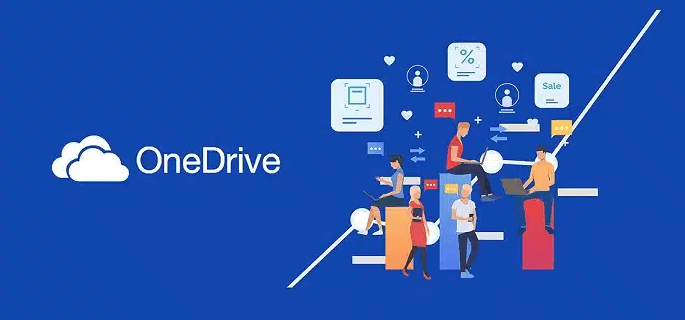Preface
If you rely on OneDrive to protect your important data and improve work collaboration, then there are chances that you are experiencing a OneDrive access denied error. This error can interrupt your workflow and access to necessary files. So, many users are searching around the Internet for an effective solution to help them out. If you are one of them, then congratulations! You have landed on the right page. Here we will break down the possible causes and provide solutions for your reference.
Major Reasons Behind OneDrive Access Denied
The following are the major reasons behind OneDrive access denied errors. Taking a look at them one by one can help troubleshoot and resolve these issues.
Permission Issues
The permission issue is usually considered as one of the main reasons for the OneDrive access denied issue. As the name suggests, Permissions is what determines who can view, edit, or share files and folders. If you are not granted the necessary permissions to perform certain actions, you cannot access or modify the content.
Temporary Glitches
Bugs or glitches in the OneDrive application or your operating system can sometimes lead to access issues. Besides, the system errors or issues with the OS may affect OneDrive’s ability to connect or authenticate.
Security Software Interference
Firewalls may prevent OneDrive from accessing the internet or connecting to your account. This can prevent OneDrive from performing necessary operations and lead to access denied errors. Also, some antivirus programs may mistakenly identify OneDrive’s activities as suspicious and block access.
Expired Access Tokens
Access tokens are used to authenticate and authorize access to files and folders. If you haven’t refreshed your authentication credentials or if there’s been a change in account settings, the access tokens might expired or be no longer valid. As a result, the OneDrive access denied errors happens!
Incorrect Sharing Settings
If sharing settings for a file or folder are not set up correctly, you might not be able to access the content. This can include settings that are too restrictive or incorrectly assigned. In addition, if the sharing link to access the file or folder has expired or is no longer valid, you will encounter issues when trying to access it.
File Ownership Conflicts
If a file or folder is owned by someone else or by an organization, you may face access issues . This can include cases where the file is part of a shared drive or organization-wide resource.
Account Authentication Problems
If your login credentials have expired or are not properly authenticated, OneDrive may deny access. This can happen if you haven’t signed in for a while or if there’s a problem with your account verification. Additionally, if your OneDrive account is suspended or locked, you will also be prevented from access.
How to Fix "OneDrive Access Denied" Effectively?
In this section, we will focus on how to troubleshoot "OneDrive Access Denied" issue based on the above possible causes. Without any further ado, just let's get started....
Verify and Adjust Permissions
First of all, check whether you have the permission: right click on the file and folder that you cannot access and select "Share" or "Manage Access". Review the assigned permissions. If you don't have the required permissions, contact the owner to request access.
Refresh Authentication
Sign out of your OneDrive account and then sign back in to refresh your authentication credentials. Besides, make sure your OneDrive is active and not suspended or locked. If you have recently changed your password or other account details, please remember to update your credentials
Refresh Access Tokens
Sign out of your OneDrive account and sign in back to refresh your access token. Besides, you have to ensure your access tokens are valid and not expired. When necessary, you can update or re-authenticate your account.
Adjust Security Software Settings
Check out your firewall settings to verify your OneDrive is allowed to connect to the Internet. If not, you have to add OneDrive to the list of the allowed apps. Ensure that your security software is up-to-date and not causing compatibility issues with OneDrive.
Resolve Ownership Issues
If you are not the owner of the file or folder, please contact the owner to request access or permission. If you are the owner, update the sharing and ownership settings to ensure that the necessary users have access.
Resolve Software and System Issues
Close OneDrive completely and restart the application to resolve any temporary glitches. Restart your computer or device to address system-related issues that might affect OneDrive access. Ensure that OneDrive and your operating system are up-to-date with the latest patches and updates. Clear the cache of the OneDrive application to resolve any temporary data issues.
Wraping Up
To solve the "OneDrive Access Denied" issue, I recommend following the above guidelines. Contact the OneDrive support team if you cannot fix it as expected.
To manage multiple OneDrive accounts or several different cloud drives, try MultCloud, a professional and reliable cloud management. Trusted by over 3 million users, it is able to facilitate the transfer or synchronization of files between various cloud services. For instance, it allows for seamless file transfers from cloud drives like Google Drive to OneDrive without the need to download and then re-upload files. MultCloud also enables you to access and manage all your cloud accounts via a single application. Currently, it supports more than 30 different cloud services, including Google Drive, OneDrive, Dropbox, Box, Google Photos, iCloud Photos, FTP, WebDav, and more.

- Cloud Transfer: Move one cloud data to another without download and re-upload.
- Cloud Sync: Sync data across clouds seamlessly in real time.
- Cloud Backup: Dynamically backup and restore files between clouds.
- Automatic: Set up a schedule to make task automatically run as preferred.
- Offline: Transfer, sync or backup cloud data online without going through local.
- Efficient: Access and manage all your clouds with a single login.
MultCloud Supports Clouds
-
Google Drive
-
Google Workspace
-
OneDrive
-
OneDrive for Business
-
SharePoint
-
Dropbox
-
Dropbox Business
-
MEGA
-
Google Photos
-
iCloud Photos
-
FTP
-
box
-
box for Business
-
pCloud
-
Baidu
-
Flickr
-
HiDrive
-
Yandex
-
NAS
-
WebDAV
-
MediaFire
-
iCloud Drive
-
WEB.DE
-
Evernote
-
Amazon S3
-
Wasabi
-
ownCloud
-
MySQL
-
Egnyte
-
Putio
-
ADrive
-
SugarSync
-
Backblaze
-
CloudMe
-
MyDrive
-
Cubby





